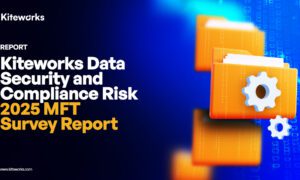The role of cyber security cannot be overstated. It stands as the first and last line of defense against a myriad of cyber threats. From personal privacy to national security, the impact of robust cyber security resonates across every facet of our digital lives. As we continue to advance in technology, staying vigilant and adaptable in our approach to cyber security will be the key to a safer digital future. Remember, the safeguarding of information is not just a responsibility, but a collective commitment that transcends individuals, corporations, and governments alike.
Individuals and Their Digital Footprint
Protecting Personal Information: As individuals, we store a treasure trove of personal information online, from social media profiles to online banking accounts. Cyber security measures such as strong passwords, two-factor authentication, and regular software updates are essential to safeguarding this information.
Awareness and Education: Being aware of common cyber threats, such as phishing scams and malware, is the first line of defense for individuals. Promoting digital literacy and educating oneself on safe online practices is crucial.
Small and Medium-sized Enterprises (SMEs)
Growing Threat Landscape: SMEs often underestimate the scale of cyber threats they face. With limited resources, they can become easy targets for cybercriminals. Emphasize the need for proactive security measures.
Investing in Cyber security: For SMEs, investing in cybersecurity is a necessity and a strategic move for long-term savings. One exemplary approach is adopting methods similar to Bishop Fox’s continuous penetration testing, which integrates seamlessly into a broader cybersecurity strategy. This approach goes beyond simple tools, including advanced solutions such as firewalls, intrusion detection systems, and extensive employee training. It represents a proactive defense against cyber threats, ensuring the resilience of the business and safeguarding vital digital assets.
Large Corporations
Data Breaches and Reputational Damage: For large corporations, data breaches can lead to severe reputational damage and financial losses. Discuss high-profile breaches and their impact on companies.
Compliance and Regulations: Large corporations must adhere to industry-specific regulations and standards, such as GDPR or HIPAA. Compliance not only safeguards data but also ensures legal adherence.
Government and Critical Infrastructure
National Security: Emphasize the role of cyber security in protecting national security, as cyber attacks on critical infrastructure can have far-reaching consequences.
Public-Private Partnerships: Discuss the importance of collaboration between governments and private corporations to strengthen national cyber security defenses.
The Importance of Cyber security
The importance of cyber security among other things cannot be overstated in today’s interconnected and digital world. Here are some of the key reasons why cyber security is of paramount importance:
Protection of Sensitive Data: It is crucial for safeguarding sensitive data, including personal, financial, and corporate information. Breaches can lead to data theft, financial loss, identity theft, and reputational damage.
Preservation of Privacy: In an era of data-driven decision-making and online interactions, cyber security is vital for preserving individual privacy. It ensures that personal information remains confidential and isn’t misused.
Preventing Financial Loss: Cyber attacks can have devastating financial consequences for both individuals and organizations. Ransomware attacks, for instance, can result in substantial monetary losses. Cyber security measures help prevent such losses.
Protection Against Identity Theft: With the proliferation of online accounts and digital identity, cyber security helps protect individuals from identity theft, which can have long-lasting, damaging effects on one’s personal and financial life.
Business Continuity: For organizations, maintaining business continuity is critical. Cyber security safeguards against disruptions caused by cyber incidents, ensuring that operations can continue uninterrupted.
Safeguarding Critical Infrastructure: Cyber attacks on critical infrastructure, such as power grids, water supply systems, and transportation networks, can have far-reaching, even life-threatening consequences. Cyber security is essential to protect these vital systems.
National Security: It is fundamental to national security. Governments need to protect classified information, critical defense systems, and infrastructure against cyber threats from hostile actors.
Preventing Fraud: Cyber security helps prevent various forms of online fraud, such as credit card fraud and phishing schemes, protecting individuals and businesses from financial losses
The Future of Cyber security
The future of cyber security is a dynamic landscape with numerous challenges and opportunities. As technology continues to advance, so do the tactics and strategies of cyber criminals. To stay ahead of the curve, it’s essential to understand the evolving trends and technologies that will shape the future of cyber security.
- Emerging Technologies
Artificial Intelligence (AI) and Machine Learning: AI and machine learning have the potential to transform cyber security. They can be used to detect anomalies in real-time, identify new threats, and enhance automated threat response. However, cyber criminals are also likely to leverage AI for more sophisticated attacks, making this a double-edged sword.
Internet of Things (IoT): The proliferation of IoT devices introduces new attack surfaces. Cyber security in the future will need to address the vulnerabilities associated with these devices, such as smart appliances, wearable tech, and industrial sensors.
Quantum Computing: While quantum computing offers immense processing power, it also threatens current encryption techniques. Future cybersecurity will require quantum-resistant encryption methods to secure data against quantum attacks.
- The Human Element
Social Engineering: Human beings remain the weakest link in cyber security. Phishing attacks and other forms of social engineering will continue to be a significant threat. Increasing awareness and training to recognize and thwart these attacks will be crucial.
Insider Threats: Malicious or negligent employees can pose a substantial risk to organizations. Effective monitoring, access control, and policies to prevent insider threats will be integral to future cyber security strategies.
- Regulations and Compliance
Data Privacy Laws: Data privacy regulations, like the GDPR and CCPA, are already shaping the landscape of cyber security. As more countries adopt similar laws, organizations will need to navigate a complex web of compliance requirements.
Supply Chain Security: Ensuring the security of the supply chain is becoming increasingly important. Cyber security will extend beyond an organization’s boundaries to include vendors and partners.
- Zero Trust Security
Beyond Perimeter Defense: Traditional perimeter-based security models are no longer sufficient. Zero trust security assumes that threats may already exist inside an organization, and access is restricted and verified based on a “never trust, always verify” principle.
- Cloud Security
Cloud Adoption: The move to the cloud is accelerating. Future cyber security strategies must encompass robust cloud security measures, including encryption, access controls, and data loss prevention.
Serverless Computing: With the rise of serverless computing, security models are shifting to address the unique challenges of this technology, including API security and function-level protection.
- Threat Intelligence and Information Sharing
Collaboration and Threat Information Sharing: As threats become more sophisticated and global, organizations and governments will need to share threat intelligence to collectively defend against cyber attacks.
Ethical Hacking and Bug Bounties
Proactive Security Testing: Ethical hacking and bug bounty programs will continue to grow as organizations recognize the value of identifying vulnerabilities before malicious actors do.
Conclusion
It’s not just an issue for corporations and governments but a concern that touches every individual in the digital age. By understanding the risks, investing in protective measures, and promoting a culture of cyber security, we can collectively work to safeguard our information and ensure a safer digital future for all. As technology evolves, so do the tactics of cyber criminals. Staying ahead of these threats requires constant vigilance, adaptability, and a commitment to safeguarding information at all levels of society. By understanding these evolving trends and embracing emerging technologies, we can collectively work towards a safer and more secure digital future. Cyber security is fundamental for protecting national security and critical infrastructure, emphasizing the importance of public-private partnerships.



































